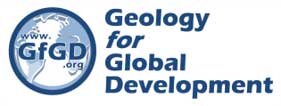GfGD Releases Key Findings in COP28 Call to Action
The Call to Action, developed through a partnership between Cardiff University and GfGD, underscores the vital role of geoscience in shaping effective Nationally Determined Contributions (NDCs).
Geology for Global Development (GfGD) announces the release of a Call to Action in preparation for COP28, drawing on pioneering research by Cardiff University students in partnership with GfGD. This document, now available on the GfGD website, is set to influence global climate policy through its innovative approach to developing Nationally Determined Contributions (NDCs).
The Call to Action, spearheaded by undergraduate Dafydd Maidment, Dr. Katherine A. Daniels, and Dr. Joel C. Gill of Cardiff University's School of Earth and Environmental Sciences, outlines crucial recommendations to enhance the ambition and technical feasibility of NDCs. This work represents a collaborative effort between Cardiff University and GfGD, funded by the Cardiff University Student Futures On-Campus Internships Programme (Innovation and Impact) and supported by the International Union of Geological Sciences.
Key recommendations from this analysis include:
Strengthening Scientific Input in NDC Development: Ensuring that mitigation and adaptation pledges are comprehensive and scientifically feasible.
Development of a standardized consultation process for diverse expertise input.
Formation of diverse scientific advisory boards for NDC development, including expertise in subsurface, groundwater, and mineral resources.
Enhanced engagement of Earth science groups in consultation processes.
Publishing an Aligned Implementation Strategy Alongside NDCs: Aiding in the formation of coherent strategies for addressing climate change.
Recommendations for higher education and research sectors to address potential skills gaps and future research themes.
Identifying and investing in training and research gaps through targeted investment.
Including informed descriptions of natural resources required for NDC pledges.
This Call to Action is adapted from a broader analysis of NDCs in Eastern Africa, scheduled for publication in 2024. It emphasizes the importance of engaging appropriate expertise in developing viable and impactful NDCs and highlights the interconnectedness of these actions with global ambitions like SDG 4.7 (education for sustainable development), SDG 8.5 and 8.6 (employment opportunities), and SDG 9.5 (research capacity).
Dafydd Maidment shares his thoughts: “The internship has been a special experience, broadening my understanding of geoscience. It has helped me reflect on my career aspirations and provided invaluable opportunities to engage with experienced professionals.”
Related work was also completed by Mohammed Abdallah, an MSc student at Hull University, supported by Dr Lara Blythe. Mohammed examined the NDCs of Sudan, Eritrea, Ethiopia, Uganda and Somalia characterising the role of geoscience and existing training opportunities. Mohammed comments on his project’s relevance: “My research on Geoscience skills for a resilient future in East Africa has been incredibly rewarding, highlighting the need for comprehensive sectoral coverage in NDCs.”
Work in 2024 will bring together the learning from the Cardiff and Hull-supported projects. As COP28 approaches, GfGD's commitment to integrating geoscience into sustainable development and climate action strategies is clear. This Call to Action offers a contribution to global climate policy, and is aimed at influencing discussions and decisions at the upcoming conference.
For more information and to access the Call to Action, visit Publications and Reports — Geology for Global Development (gfgd.org).

